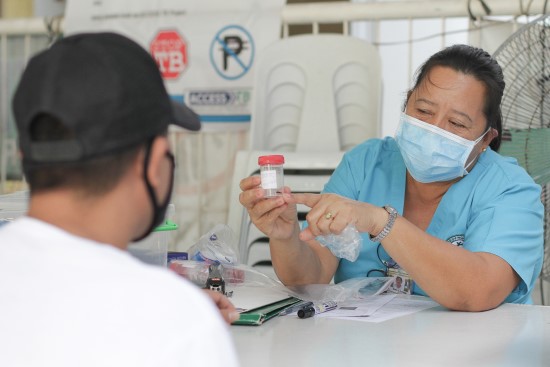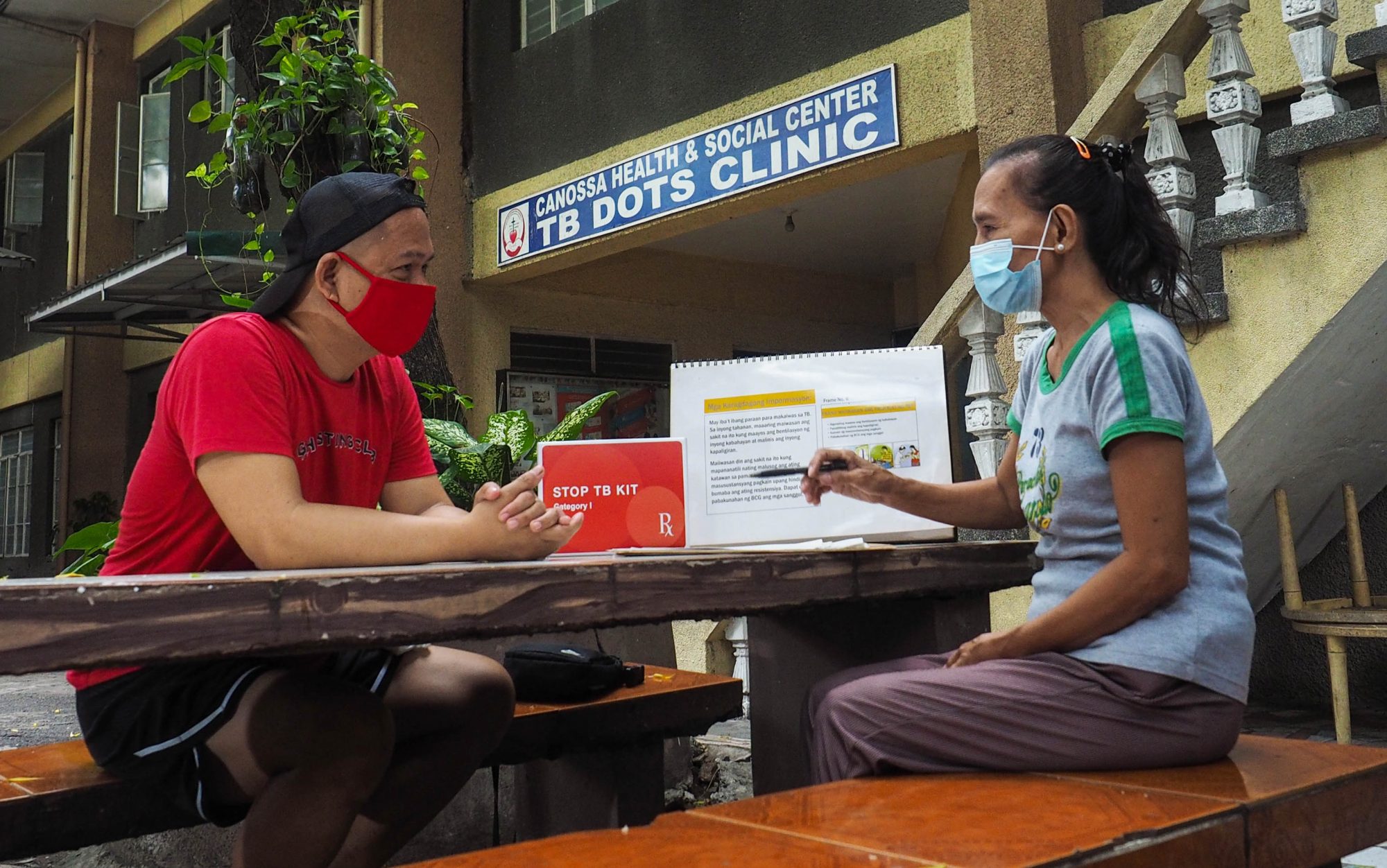About NTP
National Tuberculosis Control Program
The National Tuberculosis Control Program, organized in 1978 and operating within a devolved healthcare delivery system, is one of the public health programs managed and coordinated by the Infectious Diseases for Prevention and Control Division (IDPCD) of the Disease Prevention and Control Bureau (DPCB) of the Department of Health (DOH).
The NTP has the following mandates:
- Develop policies, standards, and national strategic plan
- Manage program logistics
- Provide leadership and technical assistance to the lower health offices/units
- Manage data and use the information to inform programmatic activities
- Conduct monitoring and evaluation
The NTP’s TB diagnostic and treatment protocols and strategies, issued through its Manual of Procedures, are based on the policies of the World Health Organization (WHO) and the International Standards for TB Care (ISTC).
Our Vision
A Tuberculosis-Free Philippines
Zero deaths, disease, and suffering due to tuberculosis
Goals
Long-Term Goal (2035)
Reduce TB burden by decreasing TB mortality by 95% and TB incidence by 90%.
Medium-Term Goals (2022)
Reduce TB burden by:
- Decreasing the number of TB deaths by 50% from 22,000 to 11,000
- Decreasing TB incidence rate by 15% from 554/100,000 to 470/100,000
- Reduce catastrophic costs incurred by TB-affected households from 35% to 0%.
- At least 90% of patients are satisfied with the services of the DOTS facilities.
Objectives
Specific Objectives by 2022
- Improve the utilization of TB care and prevention services by patients and communities.
- Reduce the catastrophic cost of TB-affected households accessing DOTS facilities to 0%.
- Ensure adequate and competent human resources for TB elimination efforts.
- Improve the use of TB data for effective TB elimination efforts.
- Enhance the quality of all TB care and prevention services.
- Increase to at least 90% of DOTS facilities that provide expanded integrated patient-centered TB care and prevention services.
- Enhance the political stewardship through a high-level political commitment of national government agencies and LGUs to implement localized TB elimination plans in coordination with different sectors.
The NTP works closely with various offices of the DOH, such as:
Health Promotion Bureau (HPB)
Advocacy, communication, and social mobilization
Epidemiology Bureau (EB)
Knowledge Management Information and Technology Services (KMITS)
Data management
Health Policy Development and Planning Bureau (HPDPB)
Policy and strategic plan formulation
Material Management Division (MMD)
Central Office Bids and Awards Committee (COBAC)
Food and Drug Administration (FDA)
Drug and supply management
National Tuberculosis Reference Laboratory (NTRL)
Laboratory network management
Lung Center of the Philippines (LCP)
PMDT-related researches and training activities
Centers for Health Development (CHDs)
Technical support to the provincial health offices and implementing units
Philippine Health Insurance Corporation (PhilHealth)
TB-DOTS accreditation and utilization of the TB-DOTS outpatient benefit package
The 17 Centers for Health Development (CHD), through its regional NTP teams, manage the TB program at the regional level while the PHOs and city health offices (CHOs), through its provincial/city teams, are responsible for the TB control efforts in the provinces and cities.
TB diagnostic and treatment services are part of the basic integrated health services which are provided by DOTS (Directly Observed Treatment, Short Course, current means of delivery of treatment Services) facilities which could either be the public health facilities, such as the RHUs, health centers, hospitals; other public health facilities, such as school clinics, military hospitals, prison/jail clinics; NTP-engaged private facilities, such as the private clinics, private hospitals, private laboratories, drugstores, and others. Community groups, such as the community health teams and barangay health workers, participate in community-level activities.


NTP closely works with the 17 government offices and private organizations in compliance with the Comprehensive and Unified Policy (CUP) issued by the Office of the President in 2003. Under the framework of public-private mix (PPM) collaboration in TB-DOTS, NTP collaborates with nongovernmental organizations, such as the Philippine Coalition Against TB (PhilCAT), a consortium of 60 groups, and the 100-year old Philippine TB Society, Inc. (PTSI), and many others.
Various developmental partners and their projects provide technical and financial support to NTP, such as the World Health Organization (WHO), United States Agency for International Development (USAID), Global Fund Against AIDS, TB and Malaria (Global Fund), Research Institute of TB/Japan Anti-TB Association (RIT/JATA), Korean Foundation for International Health (KOFIH) and Korean International Cooperation Agency (KOICA) and KNCV Tuberculosis Foundation.


